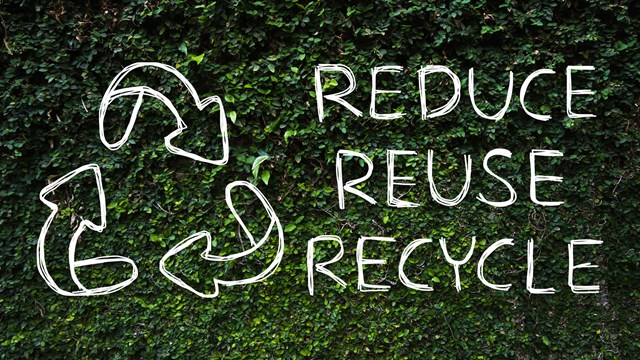
As members of Congress currently debate the issue of climate change down in Washington, New York City is already implementing its own Green New Deal--and the real estate industry will feel its impact
On April 18, the City Council passed the Climate Mobilization Act, a package of bills aimed at combating the threat of climate change that was expected to be signed into law by New York City Mayor Bill de Blasio. A major aspect of the legislation is the requirement of all large- and medium-sized buildings to reduce greenhouse gas emissions 40 percent by the year 2030, and 80 percent by 2050. Landlords who don't comply with the necessary upgrades will be fined.
“The Climate Mobilization Act is a down payment on the future of New York City — one that ensures we lead the way in the ever-growing fight against climate change,” said Councilman Costa Constantinides, a sponsor of the legislation, in a statement. “Today [April 18], we sent that message to the world by enacting the boldest mandate to reduce carbon emissions, tackling one of the biggest drivers of climate change. Our legislation represents over two years of engagement with the various communities, industries and everyday New Yorkers impacted by climate change.”
One key part of the legislation, Introduction 1253-C, “would mandate that buildings do not emit greenhouse gases at levels higher than the limits set in the legislation. The limits are set based on the occupancy group of the building and are calculated to require emissions reductions from the highest emitting 20% of buildings in each occupancy group for the first compliance date beginning in 2024, and the highest emitting 75% of buildings in each occupancy group for the second compliance date beginning in 2030.”
According to Curbed, under the legislation, buildings that measure more than 25,000 square feet would be responsible for retrofits (such as new windows and insulation) to achieve energy efficiency. Other property types such as houses of worship, hospitals, low- and middle-income co-ops, and power plants, would either be exempted or have more lenient limits set, Crain's New York Business reported.
As part of the legislation, the Act also calls for the creation of the Office of Energy and Emissions Performance within the city's Department of Buildings to ensure the measures are implemented.
Not everyone is on board with the Climate Mobilization Act; certain factions of New York's real estate industry are pushing back, as the legislation would mostly affect market-rate condos and co-ops as well as commercial buildings, said Crain's. Following the bill's passage by the City Council last month, Real Estate Board of New York (REBNY) President John Banks issued a statement: "Intro 1253 does not take a comprehensive, city-wide approach needed to solve this complex issue ... The approach taken today will have a negative impact on our ability to attract and retain a broad range of industries, including technology, media, finance, and life sciences, that provide opportunity and continued economic growth that is so important for our city.”
REBNY added that the fixed limits would hinder a building's ability to handle growth (i.e., the more people inside a building, the more energy is consumed, which means the building would exceed the imposed cap). The costs to building owners for making the required upgrades, according to REBNY, could run at least $4 billion.
The legislation was part of the city's larger program to combat climate change. On April 22, de Blasio unveiled a series of initiatives as part of the OneNYC 2050 plan that called for the following: a commitment to carbon neutrality by 2050, and 100-percent clean electricity; the banning of new inefficient all-glass walled buildings; the mandatory collection of organics; and the reduction of waste and carbon-intensive consumption, like the elimination of purchases of single-use plastic foodware.
David Chiu is an associate editor at The Cooperator.






Leave a Comment